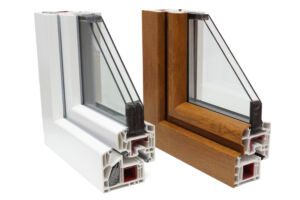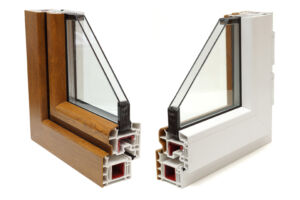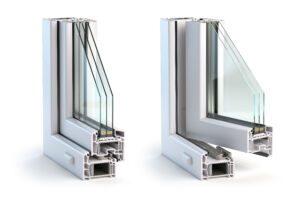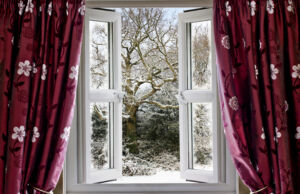Are rising energy costs keeping you up at night? You’re not alone. As the weather gets colder, we’re all looking for ways to lower our heating bills. Imagine saving up to 30% on your annual energy expenses simply by upgrading your windows.
That’s right! Switching to double or triple glazing could help you save money. Keep reading to find out the benefits of each option and how they can make your home cosier and more energy efficient.

Here’s what’s inside:
What are Triple Glazed Windows?
Triple glazed windows are the ultimate energy savers for your home. They have three layers of glass and contain gases like krypton, xenon, or argon to help insulation, regulate temperature, and dramatically reduce noise from the outside world.

Pros:
- Exceptional noise reduction keeps your home quiet.
- Additional pane enhances security against break-ins.
- Superior insulation slashes your energy bills.
- Durable design lasts up to 30 years.
Cons
- Higher initial costs could stretch your budget.
- The heavier build might require reinforced frames.
- In mild UK climates, the cost might outweigh the benefits.
What are Double Glazed Windows?
While triple glazed windows excel at insulation and noise control, double glazed windows are a great alternative that balances affordability with performance. They are standard in homes across the UK.
Double glazed have two layers of glass instead of three, but they also have an air gap in between filled with gas. If you upgrade from single glazing, you’ll probably notice a big difference in your electricity costs almost instantly.

Pros:
- More affordable than triple glazing yet effective at cutting energy costs.
- Reduces how much you need to heat your home because it keeps the heat in.
- Excellent at muffling street noise, making it perfect for city living.
- A trusted choice for homeowners seeking a cost-effective upgrade.
Cons:
- They don’t save quite as much energy as triple glazed windows.
- Secure, yet not as fortified as triple glazing.
- They’re durable, but their lifespan doesn’t quite match up to triple glazed windows.
Which Deals Better with Condensation?
Triple glazed windows generally manage condensation better. The extra pane reduces the temperature difference between the inside and outside of your home. This leads to less condensation on your windows, which means a lower risk of mould and rot messing up your window frames.
If you find that your double glazed windows are often misty, switching to triple glazing could solve your problems. But if those windows are holding up just fine against moisture, there’s no need to switch— sticking with double glazing could be more cost-effective.
Energy Efficiency: Double or Triple Glazing

Both double and triple glazed windows are very energy efficient, but how do they compare? Triple glazing often has a lower U-value. The U-value is a measure of heat loss through a window. The lower the U-value, the better the insulation.
Triple glazing offers the best in energy efficiency. However, it’s worth considering whether those extra savings are worth the higher initial cost. Double glazing might hit the sweet spot in the UK, where we don’t often face extreme cold. It offers solid energy efficiency that aligns well with our milder climate.
Cost Comparison: Double or Triple Glazing
Let’s talk numbers:
- The costs for double glazing can range from £350 to £500 per window, depending on the style, size, and specific requirements like the type of glass. It’s a budget-friendly option that offers significant improvements over single glazing.
- Expect to pay about £500 to £600 per window for triple glazing. Although it’s pricier, the investment can pay off with superior insulation for those in colder regions.
Is Triple Glazing Worth the Extra Cost?

- Your Location: Colder, windier? Triple glazing might be better. Live somewhere with a milder climate? Double glazing is enough.
- Long-term Savings: Yes, triple costs more upfront, but it might reduce your energy bills in the long run.
Wrapping Up
Whether you go for double or triple glazing, both choices will improve your home’s energy efficiency, comfort, and security. Take a moment to consider your immediate and long-term needs. What’s the climate in your area? What is your budget? Chat with a professional who can offer personalised advice and help to get accurate quotes and make the right choice.
Always choose a provider that’s FENSA registered or affiliated with the Glass and Glazing Federation (GGF). That way, you know they comply with UK building regulations and standards.
Here’s where we come into play. We help you get the windows (and doors) you deserve without a financial headache. Fancy some funding help?
We have various funding options we can match you with. You might qualify for our H2B Windows grants, where you score fully funded upgrades. Tap the button below to make your home improvement dreams come true.
FAQs
What are the differences between double and triple glazing? Double glazing is a fantastic way to lower your energy costs by keeping the warmth inside your home. But if you’re looking for even more efficiency, triple glazing can offer that. The extra layer of glass boosts insulation and can lead to even greater savings on your energy bills, especially in those colder climates!
Will triple glazing reduce condensation more than double glazing? Yes! Thanks to that extra pane, triple glazing can keep a stable internal temperature, which can prevent problems like mould and dampness around your window frames. So, if condensation tends to be a recurring issue for you, it might be worth exploring!
What is the cost difference between double and triple glazing? Double glazing usually falls between £350 and £500 per window, making it a budget-friendly choice for many! On the flip side, triple glazing tends to be around £500 to £600 per window. This option offers even better insulation, which can make a difference in colder climates, possibly making the higher upfront cost worthwhile.
Is upgrading to triple glazing worth the extra expense? When deciding on triple glazing, you should consider your local climate and your heating needs for the future. If you live in an area with harsh winters, the higher initial costs can pay off with significant savings on your heating bills in the long run. In milder climates, though, double glazing usually offers enough insulation and keeps costs manageable.
